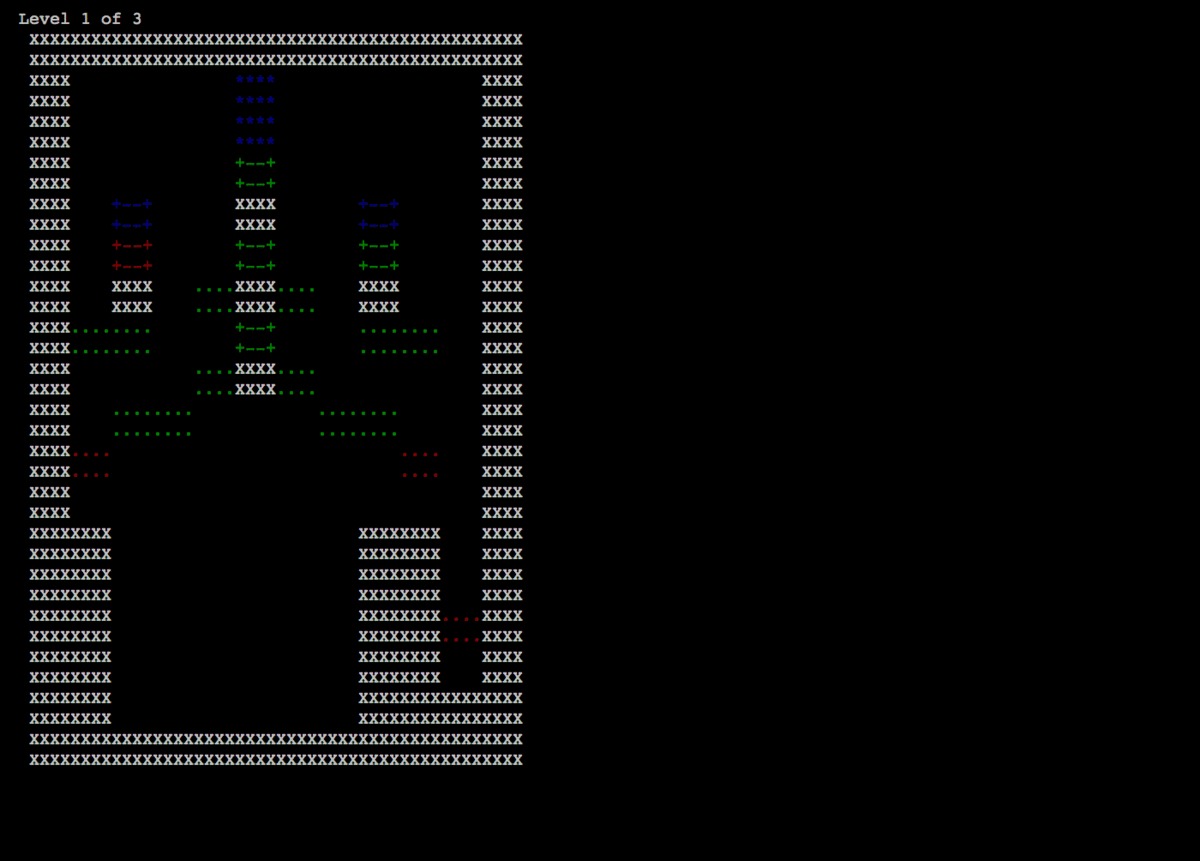

2022-05-18 review
Made in the winter of 2019, inspired by the Jellies puzzle game.
morecontent
Having played this variation on Jelly no Puzzle and other cutesy puzzle games I’d stumble across back then, like marblesgame, I decided to make my own clone of the former.
It was the middle of midterms and honestly the most fun (and only) weekend spurt of coding I had in a long while. (The previous time was probably syncflowy which I kind of more or less made, over Canadian Thanksgiving weekend and later scattered sessions over the year, for Grace Hopper 2016 because I wanted a note-taking tool generally and a side hustle to show off to prove that I was a c0d3r.)
Coming off of my fall internship at Uber on autonomous driving research where I’d learned some things and been thinking but never formally taken courses about computer graphics and vision, I was used to thinking in terms of world and coordinate transforms etc., so for visuals, the code implements a basic ASCII renderer that the game is able to draw to.
My mentor Shenlong had taught me about “image-based rendering” which we wanted to do for our research project so those discussions along with popular usage and attempts to learn graphics formed my vague understanding of what rendering was about, and it felt like offloading all the drawing-to-the-terminal functionality into a Renderer class was probably a good way to design the codebase.
Haha so I liked this personal project for being a good exercise in my gradual journey in learning how to design a (game) system.
The levels I came up with, too, and that was one of the most enjoyable parts because of how free-form it was to just doodle around with level ideas, working backwards from cute configurations you had in your mind and thinking about how the player would experience things.
My friend sped through in record time when I asked him to playtest and he told me the third (at that time second) level was interesting. He’d done his fair share of solving and designing problems so it felt like a meaningful compliment!
Personally, revisiting this three years later, I’d find solving these levels a struggle especially because it’s unfair in throwing you right in without graceful tutorial. As it is, it’s probably not that enjoyable or worth the effort to check out aside from historical curiosity unless you’ve tried his original. Past me was nice and warmed up having played through all my friend’s levels (which are much cooler by the way and will teach you the mechanics) but these days I get confused sharing audio over Zoom. As my ol’ real analysis professor/uncle Nico Spronk would say, c’est la vie. ¯\_(ツ)_/¯